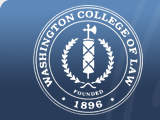Abstract
Free speech controversies erupt from reactions to outlier voices, and these voices are often those of subordinated citizens such as racial minorities. Employing the tools of narrative, interviews with litigants and subjects, and interdisciplinary analysis of case law, Professor Terry Smith probes whether the social inequality of government employees of color affects the rigor of the First Amendment protection afforded their speech. Professor Smith argues that all public sector employees lack sufficient protection because their speech typically does not receive the highest constitutional scrutiny and because of the Supreme Court's recent decision in Garcetti v. Ceballos, which stripped public sector employees of much constitutional recourse when their speech is made pursuant to their official duties. Yet when this already porous protection is applied in cases involving workers of color who may speak from the vantage point of their social inequality, the interaction of subordinate status and outsider speech distorts the proper application of extant-albeit still inadequate-First Amendment doctrine. Rather than repair to advocating a change in the level of constitutional scrutiny accorded public employee speech, Professor Smith draws on the Supreme Court's recent decision in Burlington Northern & Santa Fe Ry. Co. v. White, involving retaliation under Title VII, to demonstrate how First Amendment public employee plaintiffs, including employees of color, can fortify the First Amendment's protections within the framework of existing law.
Recommended Citation
Smith, Terry. “Speaking Against Norms: Public Discourse and the Economy of Racialization in the Workplace.” American University Law Review 57, no.3 (February, 2008): 523- 584.

